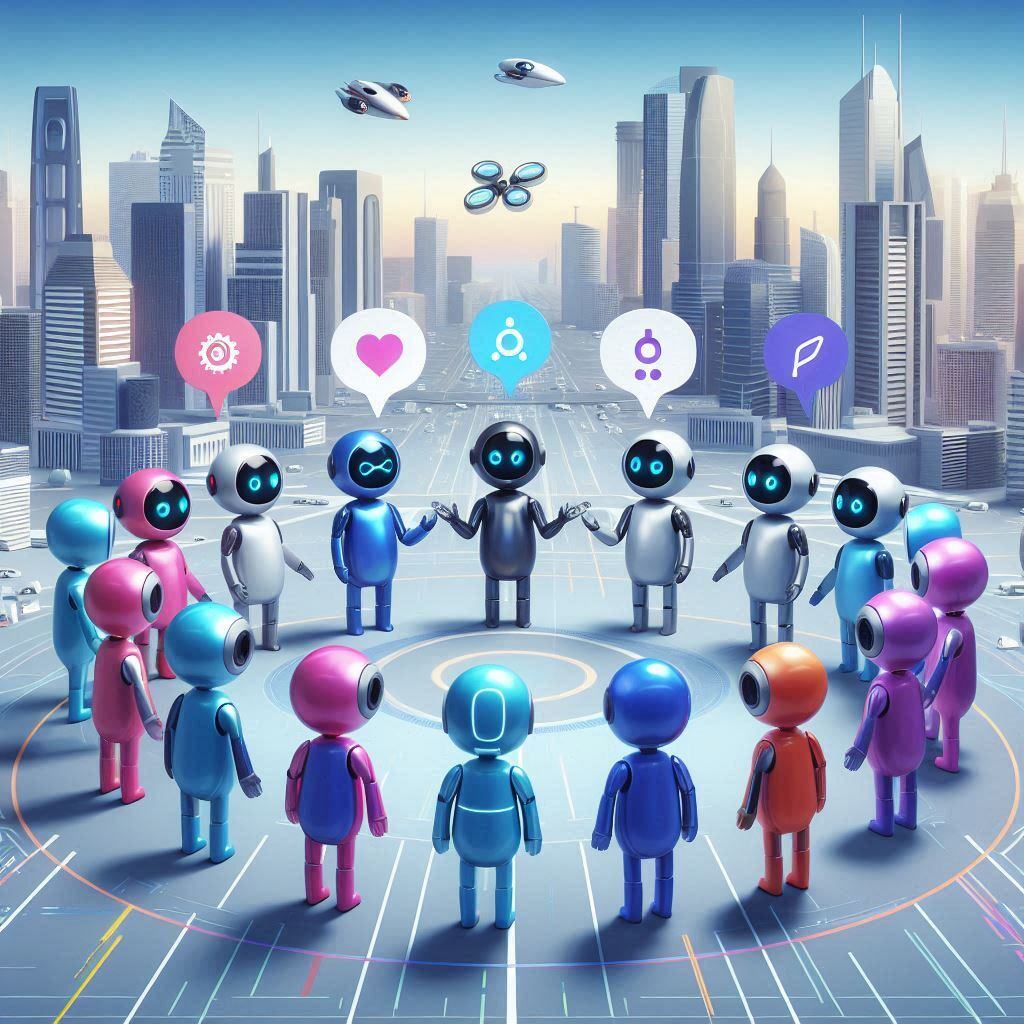How to Build Fun and Functional AI Agents with Integrail
Artificial Intelligence (AI) agents are no longer just tools for complex systems—they are becoming interactive, creative, and easy to build, thanks...
Enhance your AI with Integrail’s state agents, leveraging memory for smarter, more personalized interactions. Learn how to build them now!
Artificial intelligence is becoming smarter every day, but what if your AI could actually remember past conversations and use that knowledge to offer better responses? That’s what state agents in Integrail Studio do—they remember what happened before and use that information to make decisions. This makes them perfect for more complicated tasks, like customer service, marketing, and IT management, where retaining information across multiple interactions is crucial.
In this post, we’ll break down how state agents work, how to set them up, and why memory is the secret ingredient to enhancing AI capabilities.
Not all AI is created equal, and the difference between reflex agents and state agents is huge.
Reflex Agents: These agents only respond to what you tell them right now. For example, if you ask a reflex agent, “Who is Ernest Hemingway?” it will probably give you an answer. But if you follow up with, “What books did he write?” the reflex agent won’t remember your first question, so it might give you an entirely new, irrelevant answer.
State Agents: These are much smarter because they can remember. So if you ask about Ernest Hemingway, and then ask, “What books did he write?” the state agent will know you’re still talking about Hemingway and continue the conversation. This memory capability makes state agents better for conversations that require a bit of back-and-forth or multi-step processes.
Creating a state agent in Integrail Studio isn’t as complicated as it sounds. The platform makes it pretty straightforward, even if you’re new to AI.
1. Set Up the Basics: Just like a reflex agent, you’ll start with the basic architecture—input and output nodes. But here’s where things get interesting: instead of just responding and forgetting, you’ll add a chat history node that allows the agent to store and recall previous interactions.
2. Connect the Chat History Node: In the Studio, instead of using the basic LLM Simple node (which is more for transactional or one-off tasks), you’ll use the LLM Chat node. This is where the magic happens—this node lets the agent keep track of the conversation’s context. Connect the chat history to the LLM model of your choice, and voilà! Your agent can now remember what happened before.
3. Add a Memory Node: To really make your agent effective, use a session node. This node updates after each interaction and stores relevant info, like user preferences or task details, so the agent doesn’t have to analyze the entire conversation every time. It can focus on what matters, which is particularly useful in multi-step tasks.
So what can you do with state agents? The possibilities are endless, but here are a few standout examples:
1. Customer Service: Imagine dealing with a customer support agent who remembers you. That’s the power of a state agent. It keeps track of past interactions, remembers your preferences, and can even predict what you need next. No more explaining your problem over and over again—state agents retain that information and offer personalized solutions.
2. Marketing: In marketing, state agents can assist in building personalized campaigns over multiple sessions. They remember your inputs, like target audiences or key product features, and they can keep refining the strategy based on your feedback, saving tons of time and effort.
3. IT Management: When it comes to managing IT workflows, state agents can handle multi-step processes like onboarding new employees or diagnosing system issues. They can remember previous tasks and help complete new ones without needing constant reprogramming or manual oversight.
One of the best features of state agents is their ability to update short-term memory. This allows them to keep track of session-specific information without needing to comb through endless chat histories. This also saves time and computational resources.
In Integrail Studio, the session node updates after every interaction, keeping track of the essential bits. This makes your agents much more efficient because they aren’t bogged down by unnecessary information—they stay focused on the task at hand.
Let’s look at a practical example of a state agent in action. The Questionary Builder is a state agent designed to collect specific user information, like name, date of birth, and hobbies, through natural conversation.
How It Works:
The agent’s goal is to gather all the required information through a series of interactions. For example, after learning a user’s name, it stores that information and moves on to the next question, like asking about their hobbies.
Using a session memory node, the agent keeps updating its knowledge after every interaction. By the end of the conversation, it can summarize everything it has learned—no need to ask the same questions over and over again.
This kind of agent can be expanded to handle even more complex tasks, like gathering user data over multiple sessions or managing customer service tickets efficiently.
The potential of state agents doesn’t stop here. Integrail is constantly working on making these agents even more powerful:
Full Automation: In the future, state agents will be able to manage complex tasks from start to finish without needing human intervention.
Long-Term Memory Integration: While these agents currently focus on short-term memory, future updates will allow them to store deeper information for longer periods, making them even more versatile.
If your business relies on automation—whether for customer service, marketing, or IT management—state agents are the tool you need. They provide a level of sophistication and efficiency that reflex agents simply can’t match. By retaining memory and adapting to users’ needs over time, state agents offer more personalized, effective interactions that can improve the customer experience and streamline operations.
Want to start building your own state agents? Head over to Integrail.ai and see what you can create.

Artificial Intelligence (AI) agents are no longer just tools for complex systems—they are becoming interactive, creative, and easy to build, thanks...

Artificial intelligence is moving beyond static models and into the realm of adaptive, learning agents—AI systems that continuously evolve based on...

Artificial intelligence is becoming increasingly essential for businesses looking to streamline their processes. One of the most powerful ways to tap...
Start your journey with Integrail

Try AI Studio by Integrail FREE and start building AI applications without coding.

NEW White Paper: Discover how AI Studio accelerates your workflows